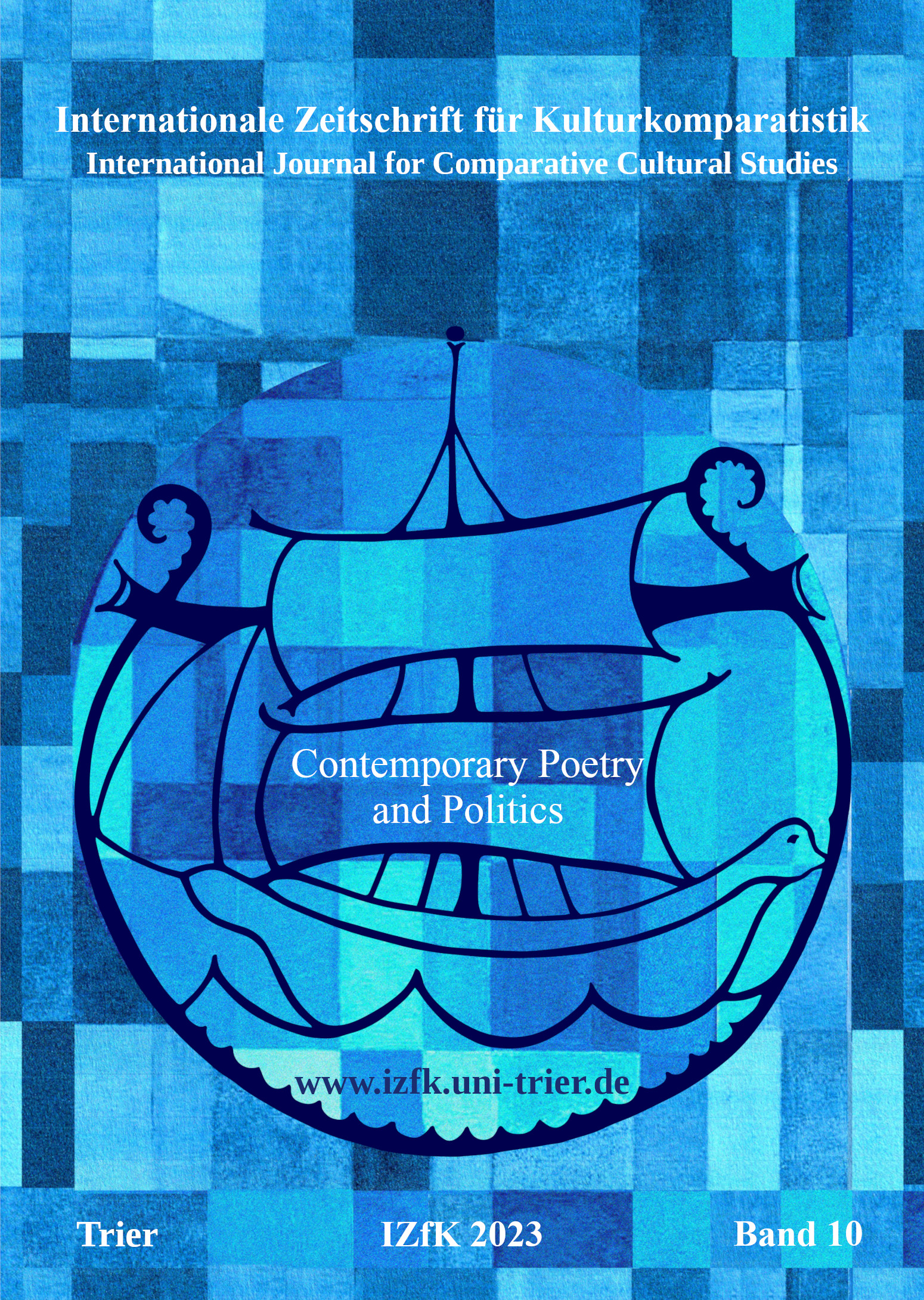„Die Antwort auf eine Frage ist in der Kritik der Frage selbst enthalten“. Karl Marx im transitiv poetisch-politischen Werk von Dmitrij Prigov
Hauptsächlicher Artikelinhalt
Abstract
“The answer to the question is contained in the critique of the question it-self”: Karl Marx in the Transitive Poetic-Political Work of Dmitrii Prigov
This article considers the theme of Karl Marx in the poetry and artwork of Dmitrii Prigov. It conceives of his poetic communication as a political activity, which is stressed by its performative qualities and is presented by the example of the poem “Moscow and Muscovites”. Further on, the article distinguishes four speech attitudes in relation to the term “Karl Max” in the culture of Soviet Russia: belief, condemnation, quotation, and Prigov’s technique of reading Marx’s texts literally. Thus, he interprets Marx’s sentence “The answer to a question is contained in the critique of the question itself” verbatim and, by generalization (a common device of Soviet Marxism), leads it to absurdity. Prigov does the same with the slogan “Proletarians of the World Unite” from the “Communist Manifesto”, which he transforms into a parodic epistolary poem modeled on Lermontov’s “Demon”. The article also considers the use of the name of Marx and the stereotypically connected family names of Engels, Lenin, and Stalin in Prigov’s work and argues, using the motif of the policemen (“militsaner”), that, contrary to Marx’s expectations of real Socialism, the function of power was not dying but growing. Finally, attention is drawn to the role of so-called historical and socio-economical “Marxist laws” (such as ‘dialectical’ and ‘historical materialism’), which in Prigov’s work are dethroned and become possible concepts beside others. Thus, Prigov installs freedom in place of the Marxist necessity of interpretation, which was also the basis of Mikhail Lifshitz’s anti-modernist aesthetics, the most important contribution of Soviet philosophy to aesthetic theory.


